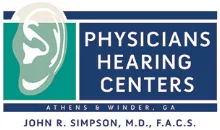“I can hear fine.”
If you ever found yourself feeling this sentiment, you’re not alone. And if you ever found out you were wrong about it, take heart—you’re in good company.
Today’s fact is an important reminder of not only how prevalent hearing loss is, but also how difficult it can be to detect.
On the bright side—the more you know, the better you can take care of your hearing health. So, let’s dig in.
Why hearing damage is so common
According to the Centers for Disease Control and Prevention (CDC), the source of today’s fact, noise-induced hearing loss (NIHL) impacts nearly 40 million US adults aged 20–69.
A form of permanent hearing damage, NIHL occurs when excessively loud noise damages the hair cells in your inner ear and the hearing nerve.
Why is NIHL so widespread? Simply put, noise exposure can come from many places and situations in your daily life, such as attending live concerts or other crowded events. Using power tools. Watching fireworks. Even streaming audio through your earbuds.
Moreover, noise has the potential to damage your hearing immediately (if it’s sudden or impulse, like a siren or firecracker near the ear) or over time (if it’s continuous and high-volume, such as audio from earbuds or headphones).
Why hearing damage is difficult to detect
Hearing loss is commonly referred to as an invisible health condition: Because we can’t physically see it, we often overlook the early signs.
Hearing loss is also difficult to identify because it often occurs gradually, over time. So, it’s commonplace for people who have it to find ways to cope and even grow accustomed to reduced hearing.
Unfortunately, the longer you let hearing loss go, the more difficult it is to treat. And by leaving your hearing loss untreated, you also increase your odds of depression, falling, hospitalizations, and dementia.
For these reasons, it is smart to make hearing screenings a part of your routine health exams. And while we recognize it is not uncommon for physicians to prioritize other tests and questions before hearing, there are two things you can do:
Tell your physician about your hearing concerns
Whether you think you may have hearing loss or are unsure, tell your physician. They can refer you to a licensed hearing care professional in the same way they might send you to a dermatologist for skin issues.
A hearing specialist will have the equipment and expertise to evaluate your hearing and counsel you through treatment options for any hearing issues.
(Interested in hearing protection? Hearing care professionals can help with that, too.)
Visit a hearing care professional yourself
Experts recommend having your hearing screened every three years once you’re 50. So, please feel empowered to make a hearing evaluation part of your annual health checks.
Hearing exams are simple and pain-free, and can easily be set up with our hearing care professional. Schedule an appointment today for a hearing consultation.
